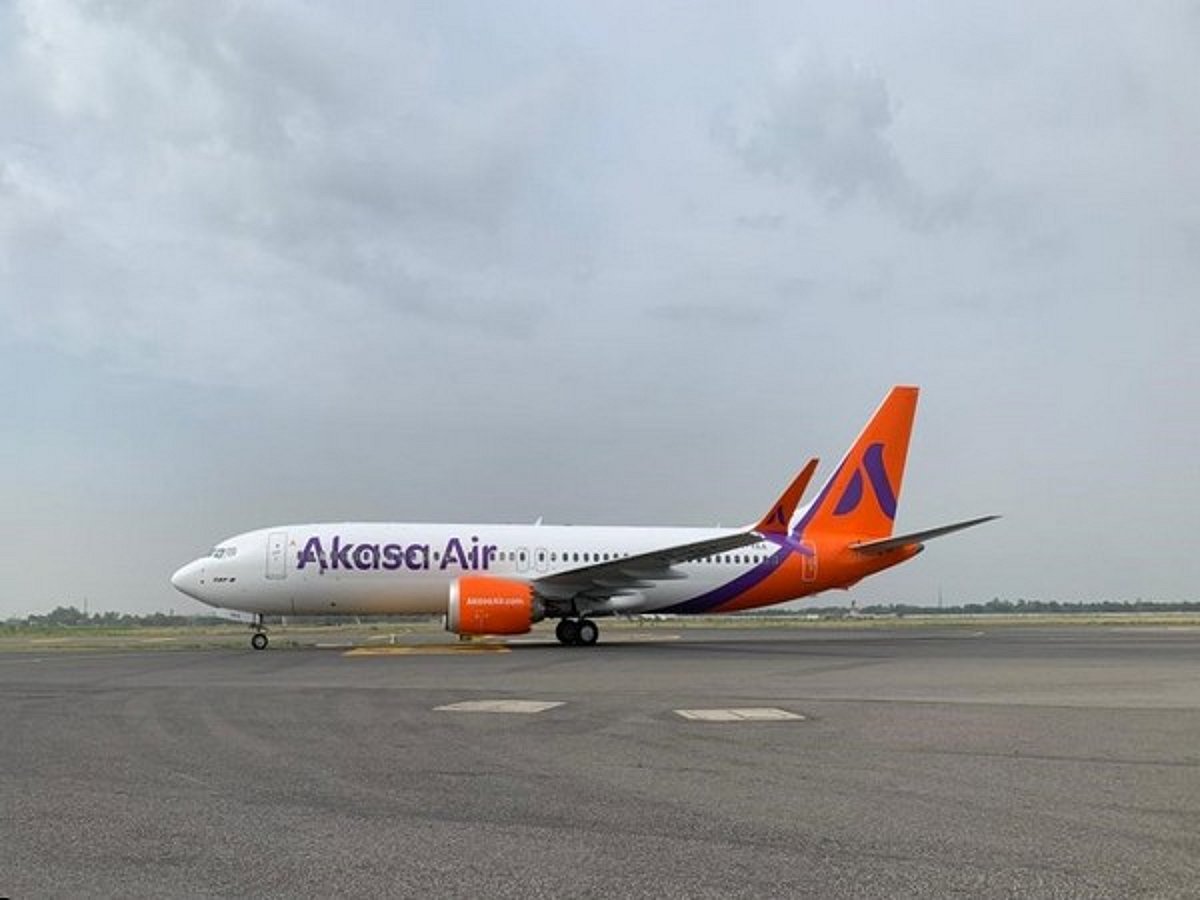Akasa Air Flight Lands Safely After Bird Strike Incident
On Friday morning, an Akasa Air flight traveling from Pune to Delhi encountered a bird strike but managed to land safely at Indira Gandhi International Airport. Fortunately, there were no reported injuries among the passengers or crew members aboard the aircraft.
Incident Details
The flight, designated QP1607 and operated by a Boeing 737 MAX 8, touched down in Delhi shortly after 10 AM, as tracked by Flightradar24. Following the incident, all passengers were safely deplaned, and the airline confirmed that standard safety protocols were followed.
Aircraft Inspection
An Akasa Air spokesperson stated that the aircraft would undergo a thorough inspection by the engineering team to ensure its airworthiness. The inspection is part of the airline’s standard operating procedures, and the aircraft will be cleared for service once it passes the examination.
Impact on Operations
Although the aircraft was scheduled for a subsequent flight from Delhi to Goa later that day, the departure was delayed for a few hours while another plane was arranged for the route. Akasa Air assured that this incident did not disrupt its overall flight operations.
FAQs
What happened during the Akasa Air flight?
The flight experienced a bird strike but landed safely in Delhi without any injuries reported among passengers or crew.
Was the aircraft grounded after the incident?
Yes, the aircraft was grounded for inspection to ensure it meets safety standards before returning to service.
Did this incident affect other flights?
No, Akasa Air confirmed that the incident did not impact its broader flight operations.
Conclusion
The Akasa Air flight from Pune to Delhi successfully landed after a bird strike, with no injuries reported. The airline is conducting a thorough inspection of the aircraft, and while one flight was delayed, overall operations remain unaffected. Passengers can expect updates as the situation develops.
Bird strikes are a known risk in aviation, particularly during takeoff and landing phases when aircraft are flying at lower altitudes. According to aviation safety experts, these incidents can occur when birds are attracted to the vicinity of airports, often due to the presence of food sources or habitat. While most bird strikes do not result in significant damage to aircraft, they can pose serious risks, particularly if they affect critical components such as engines or windshields. Airlines and airports implement various measures to mitigate these risks, including habitat management and the use of bird-detection systems.
The Boeing 737 MAX 8, the aircraft involved in this incident, is a modern jetliner that has been in service since 2017. It is designed with advanced technology and safety features, including improved aerodynamics and fuel efficiency. However, the aircraft has faced scrutiny in the past due to safety concerns following two fatal crashes in 2018 and 2019. Since then, the model has undergone extensive scrutiny and modifications to enhance its safety protocols. The incident involving Akasa Air highlights the ongoing challenges airlines face in ensuring the safety of their operations, even with modern aircraft.
Akasa Air, a relatively new player in the Indian aviation market, commenced operations in August 2022. The airline aims to provide affordable air travel options while maintaining high safety standards and customer service. The incident on Friday serves as a reminder of the inherent risks in air travel, but it also underscores the effectiveness of safety protocols that are in place. The swift response by the airline and the absence of injuries reflect the importance of rigorous training and preparedness among airline staff. As the airline continues to expand its network, it will likely remain vigilant in addressing safety concerns while ensuring a positive travel experience for its passengers.
Also Read:
New Battery Rules for UAE Travelers at Indian Airports







